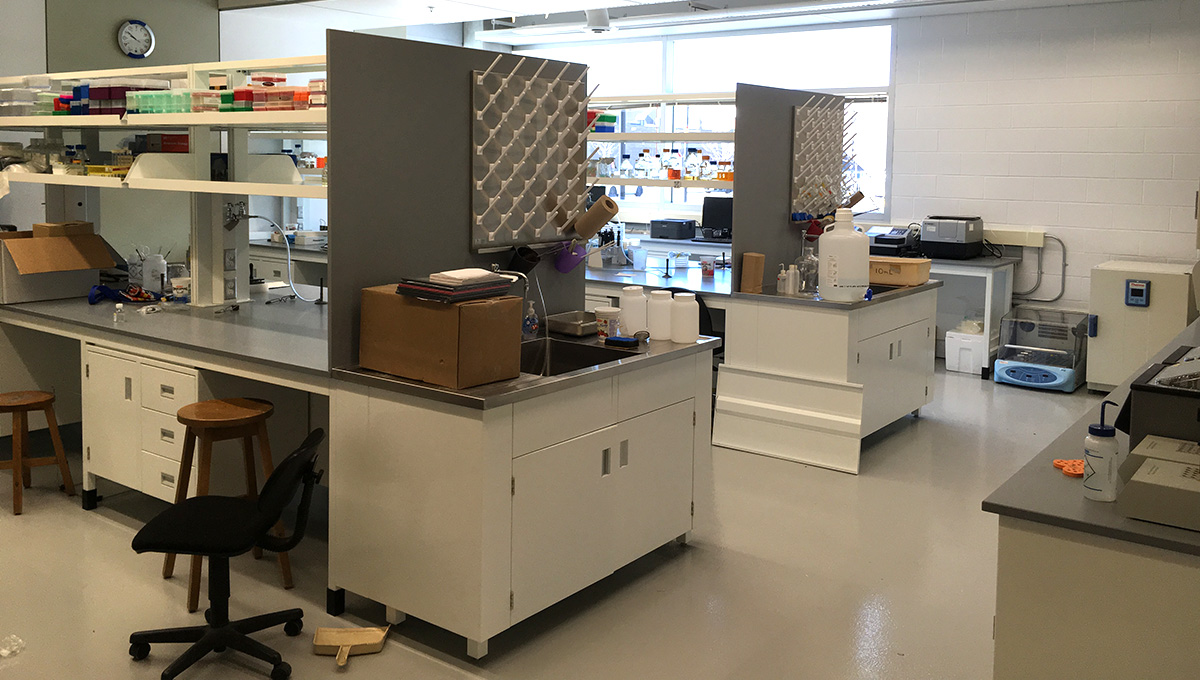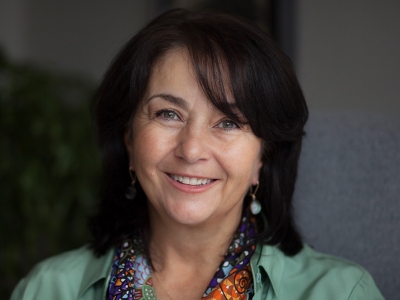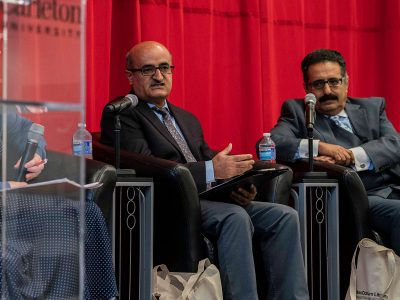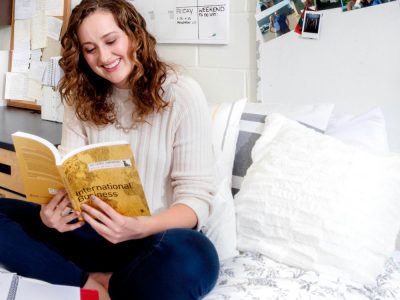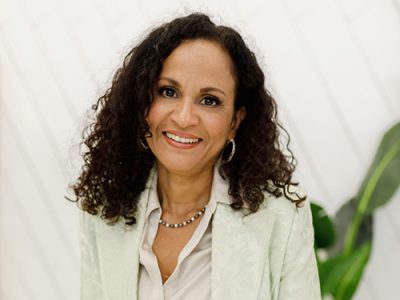By Sissi De Flaviis
Carleton University Biology Prof. Alex Wong is working on a unique research initiative to decontaminate medical face masks exposed to COVID-19 with ultraviolet light technology.
The idea was sparked in March when there was a substantial concern over Personal Protective Equipment (PPE) in the country. Wong was approached by Arkalumen, a LED design and manufacturing company, and the Children’s Hospital of Eastern Ontario (CHEO).
“Arkalumen was interested in developing ultraviolet LED for decontaminations and CHEO was interested in doing UV decontamination of masks . . . It sort of clicked together,” says Wong.
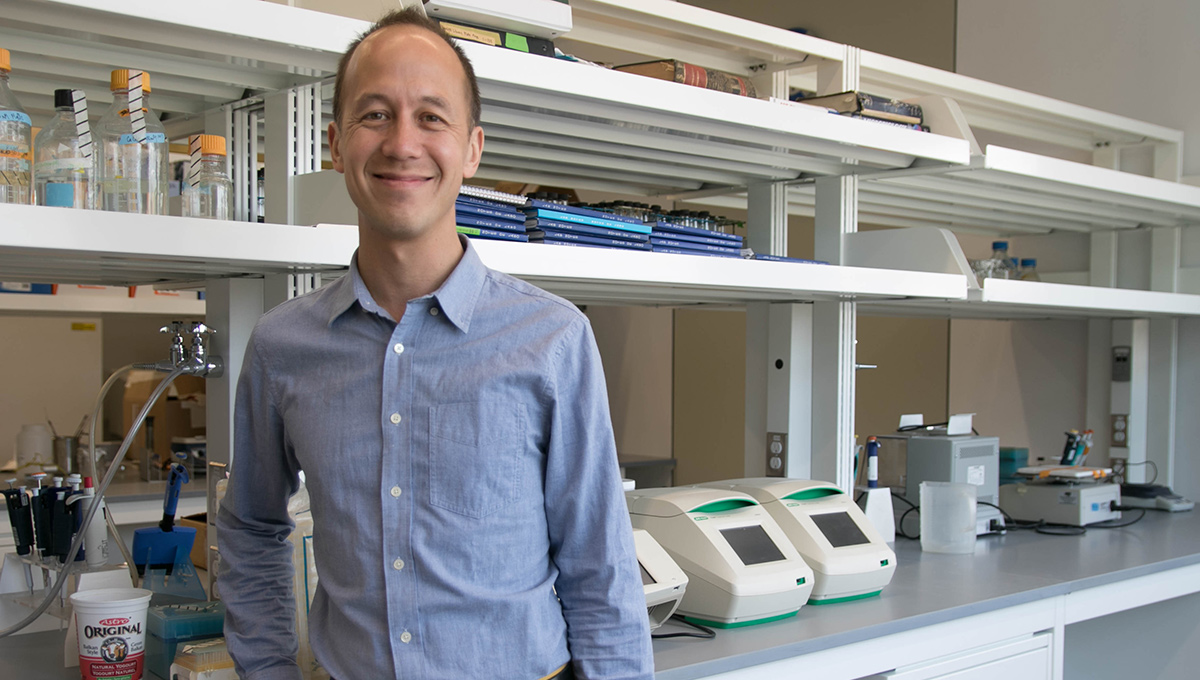
Alex Wong
The research received funding from the Natural Sciences and Engineering Research Council (NSERC).
After CHEO did some background research, it found that certain kinds of UV wavelengths would be efficient for decontamination. Arkalumen then manufactured a cabinet with the necessary light sources and brought the equipment to Carleton’s Department of Biology laboratories to test its decontamination capabilities.
So far, Wong and research associate Aaron Hinz have eliminated bacteria from the medical face masks. Now, they are testing viruses, since the later are smaller and have different coatings than bacteria.
“What kills bacteria isn’t necessarily going to work on the virus,” explains Wong.
“It’s a little bit longer than bacteria, but it still works quite well.”
The lab is working with non-human virus samples for safety reasons as these viruses are unable to infect humans.
“We can’t work with live SARS-CoV-2 in the lab,” explains Wong. “We’re not accredited to work with those kinds of organisms.”
The lab is working with MS2 which is a bacteriophage – a virus that infects bacteria but is not harmful to humans – and heat-killed SARS-CoV-2, which caused COVID-19.
Since both viruses are dead, instead of measuring their survival, Wong and Hinz are measuring the integrity of the virus’ genome or RNA, explains Wong.
“The assumption is that if we can damage its genome with the UV light, then we’re going to make it inviable and we are going to kill it.”
In the lab, Hinz takes the non-human virus from the freezer, then the sample is applied in a wearable mask which is later on placed inside the UV cabinet. After 15 to 90 min, the mask gets taken out of the container and Hinz quantifies the residues.
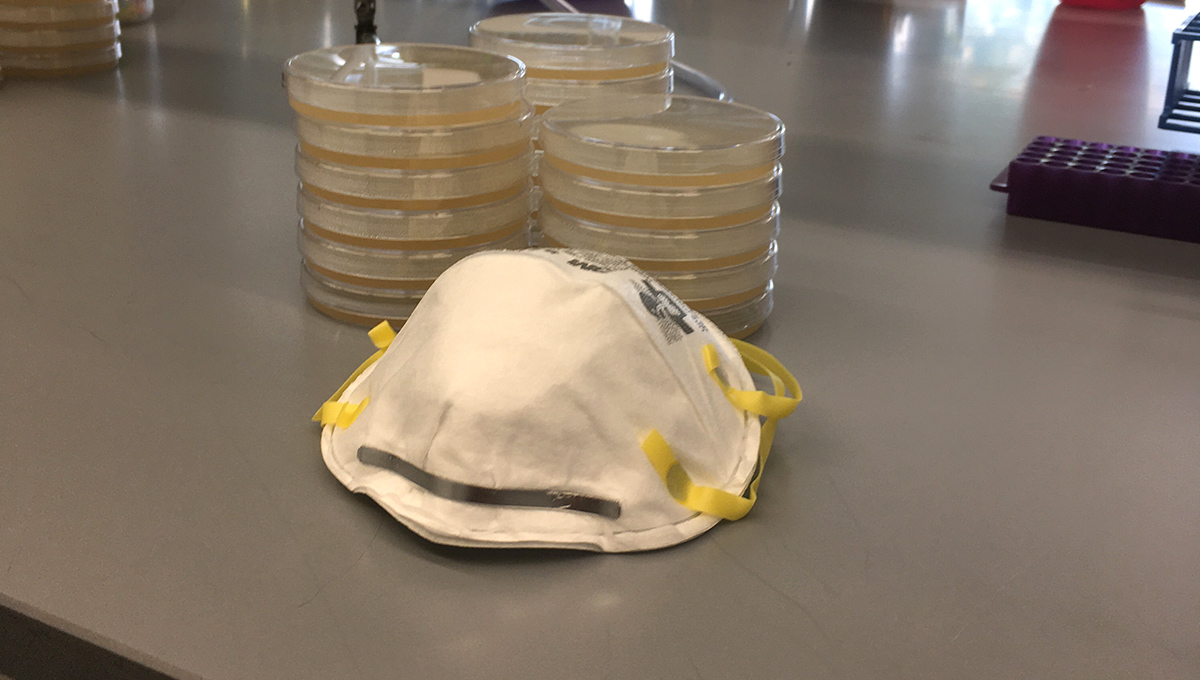
Reusable Equipment to Increase Protection
The research will lead to a product that allows equipment exposed to COVID-19 to be reused, so doctors in hospitals, remote locations or mobile first respondents can always be protected.
“An organization like the Red Cross, or even the military, that are going out into remote areas, not necessarily setting up a whole hospital, but having limited resources and potentially needing to decontaminate, they could use a unit like that,” said Wong.
The final product will not be designed for household use since the process itself can be harmful to humans.
“The UV light we’re using can be quite harmful to humans if it is exposed to your skin or to your eyes – it can cause quite a bit of damage,” says Wong.
For the most part, Canada has been able to contain a mass spread of the novel coronavirus. However, Wong says this product will be convenient if the situation were to spiral out of control.
“We’ve seen in various parts of the world that countries that have had a swift and effective early response have had resurgences of COVID when they started relaxing the restrictions.
“We want to be prepared if things get worse.”
At the same time, “there are many parts of the world where COVID isn’t under control. This kind of technology will become useful elsewhere.”
“When we’re all done with COVID, this technology could still be useful for other diseases and other situations,” says Wong.
